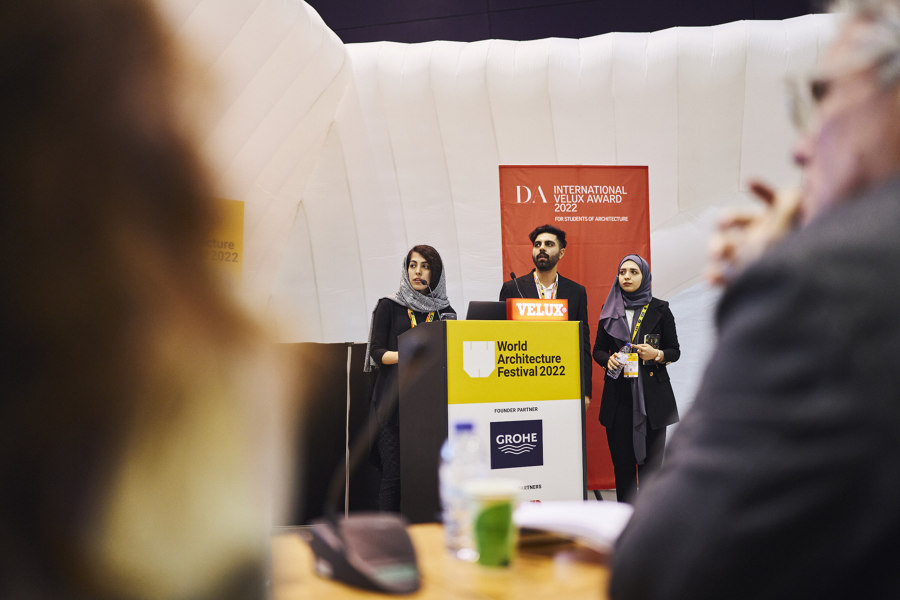International VELUX Award 2022: Light of Tomorrow
Brand story by Emma Moore
Hørsholm, Danemark
16.12.22
In early December, the global winners of the International VELUX Award 2022 were announced, a competition for architecture students that celebrates the innovative and creative use of daylight in a broad range of different projects.
Students of the University of Art in Tehran, Sajjad Navidi, Mahya Mousavi Sadr and Elham Bahadori were behind Flight, the winning entry in the Daylight Investigations category. Photo: ITCHY
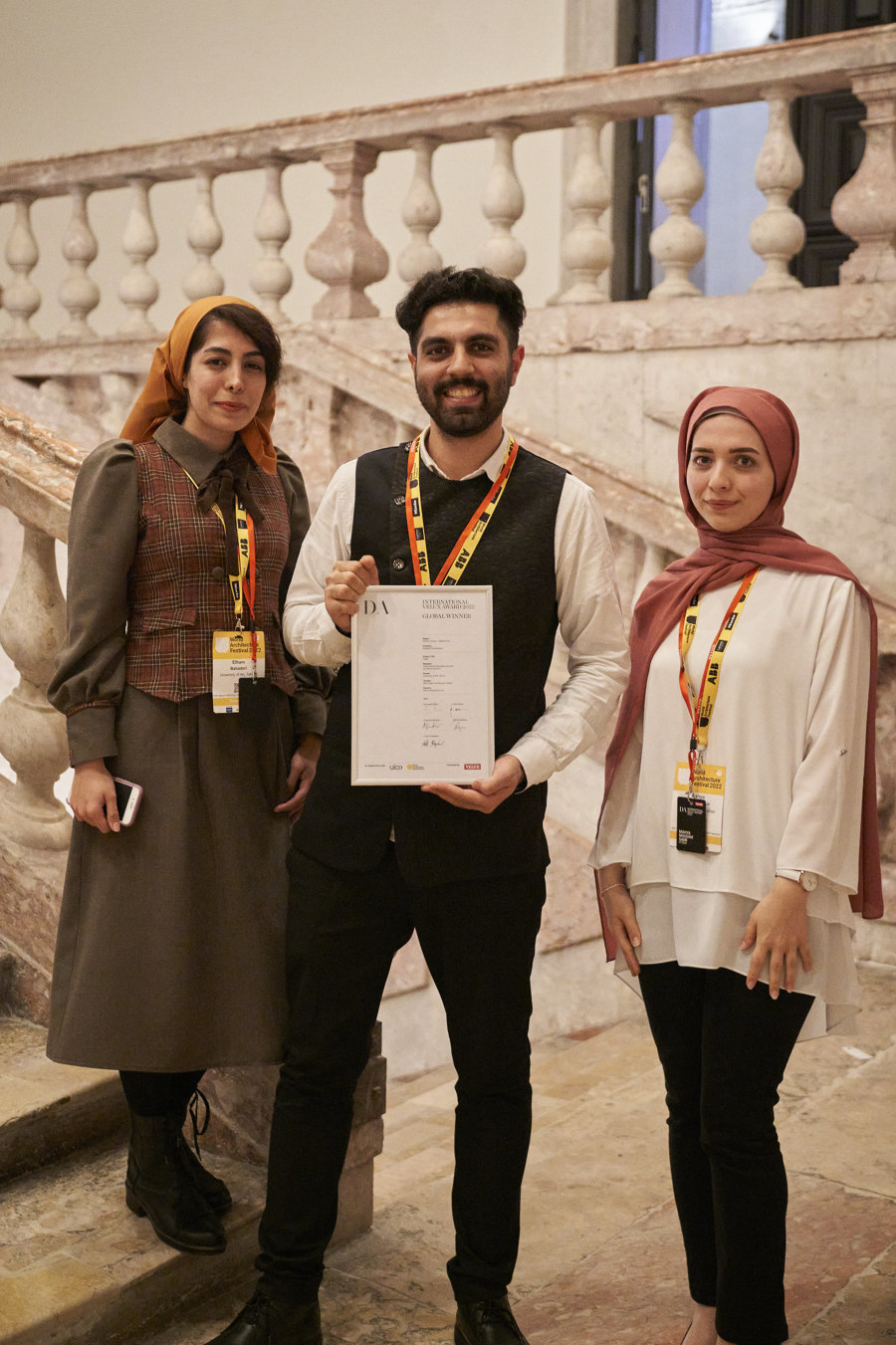
Students of the University of Art in Tehran, Sajjad Navidi, Mahya Mousavi Sadr and Elham Bahadori were behind Flight, the winning entry in the Daylight Investigations category. Photo: ITCHY
×It’s not something many of us spend much time contemplating, but ask an architect for an appraisal of daylight, and you start to realise just what a phenomenal resource it is. Not only an inexhaustible source of energy that feeds us light, it also props up our health and wellbeing, and plays an invaluable role culturally – in art and architecture. What’s more, it’s free.
Daylight as a source of problem-solving innovation
Why do I mention it? Well, there are a few students of architecture globally who have been thinking very deeply about daylight lately, investigating what it can give us, how it might evolve, and what role it can play in our future world. These are the entrants into VELUX’s biennial competition – The International VELUX Award – bearing the theme ‘Light of Tomorrow’ and they number over 500 in total. In July this year, a pre-eminent jury of architects, comprising John Ronan (US), Anupama Kundoo (India), Rainer Hofmann (Germany), Lotte Kragelund (Denmark) and Fuensanta Nieto (Spain), whittled out ten regional winners from eight different countries and on the 2 December, during the biannual World Architecture Festival, this time hosted in Lisbon, they heard their presentations and chose two overall winners.
Zuzanna Sazonow and Aleksandra Pytka, students at the Politechnika Poznańska, Poland, won the award in the Daylight in Buildings category, for their project TIP: Time Indicate Protection. Photo: ITCHY
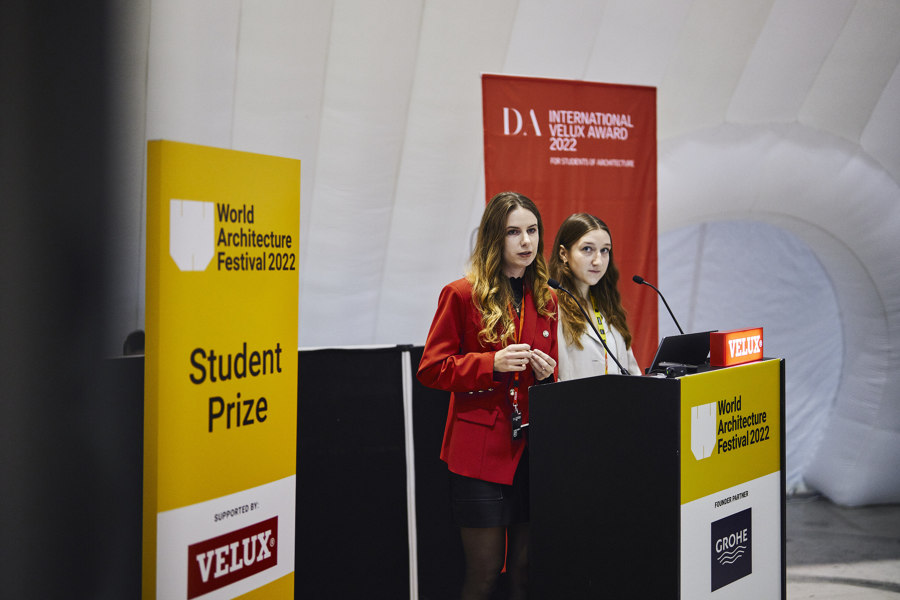
Zuzanna Sazonow and Aleksandra Pytka, students at the Politechnika Poznańska, Poland, won the award in the Daylight in Buildings category, for their project TIP: Time Indicate Protection. Photo: ITCHY
×Encouraging original, future-proofing design solutions
VELUX, of course, is famously a purveyor of windows – typically the type that introduce light into reclaimed roof spaces, or structures that can only be lit from above. The resource in question is clearly essential to the brand’s existence, but few, if any, parameters are put on the ways in which daylight is explored and celebrated for the award. This is a truly unfettered academic exploration of a resource, with thought-provoking and varied results.
Not only an inexhaustible source of energy, light also props up our health and wellbeing. What’s more, it’s free
Thought-provoking projects across the regions
There are two categories: Daylight in Buildings and Daylight Investigations. Entries to the former category included an exploration by students from Beijing Jiaotong University, Beijing, into the role of daylight in security and crime prevention in the growing number of urban villages in China. In South Africa, Elmarie van Staden of Greenside Design Center, College of Design, Johannesburg, developed Aqua Mart, a place where rest can be sought while water is purified: daylight is managed to provide sterilisation, shade from searing heat and create relaxing patterns.
The Poznan students’ project was a modular shading system that addresses the growing issue of buildings over-heating in summer – adaptable to buildings the world over
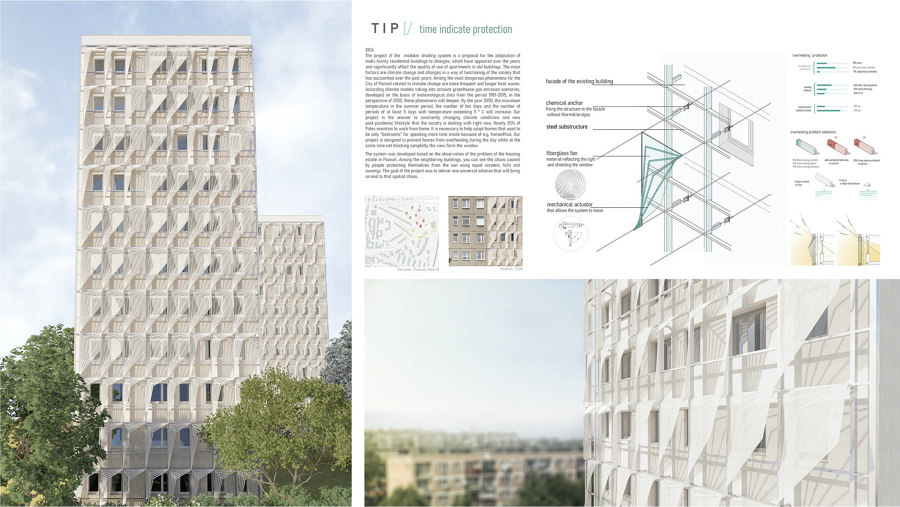
The Poznan students’ project was a modular shading system that addresses the growing issue of buildings over-heating in summer – adaptable to buildings the world over
×In the Daylight Investigations category, one intriguing proposal from a group of students from Southwest Jiaotong University, Chengdu, involved the creation of a festival to reconnect communities to the land they formerly inhabited – before the flooding of three gorges displaced them. For its duration, environmentally-friendly river lanterns are launched to light up the submerged world of buildings and monuments, and allow a dream-like reconnection to land which 1.2 million migrants are said to have lost.
The students from Tehran impressed with their multi-faceted project, which addresses the lack of light and security in refugee camps, while creating an outdoor game for children. Photo (top): ITCHY
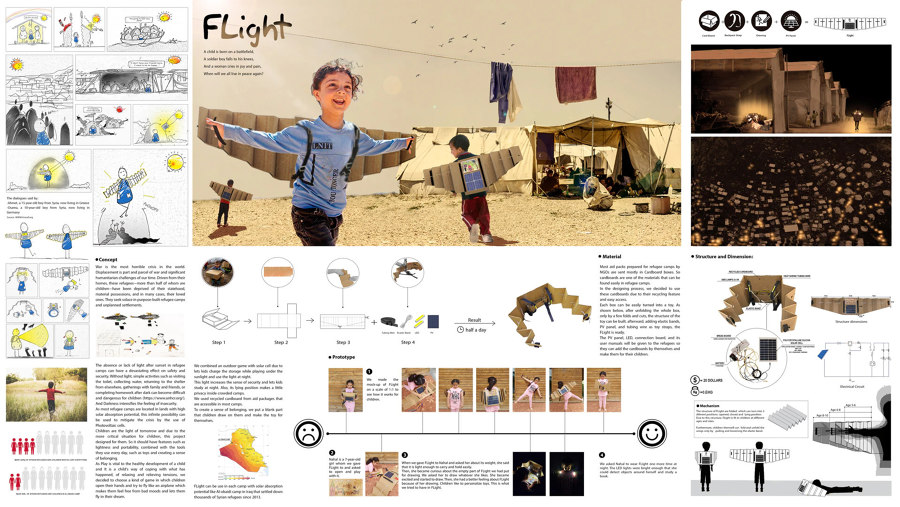
The students from Tehran impressed with their multi-faceted project, which addresses the lack of light and security in refugee camps, while creating an outdoor game for children. Photo (top): ITCHY
×The global winners
These were regional winners. The job of picking overall global winners from entries of this standard was not enviable but ultimately two projects shone through for the jury, to win the crown in each category. In the Daylight in Buildings category, Zuzanna Sazonow and Aleksandra Pytka from Poland’s Politechnika Poznańska, Poznań, were awarded for their instantly practicable solution to adapting buildings to the heat fluctuations afforded by climate change while allowing necessary light to still enter what are now often not only living but also working spaces. Entitled ‘TIP: Time Indicate Protection’, their invention is a modular shade system that replaces the piecemeal screens, foils and awnings that are increasingly employed – in the words of the designers: ’a universal solution that will bring an end to spatial chaos.’
The job of picking overall global winners from entries of this standard was not enviable but ultimately two projects shone through for the jury, to win the crown in each category
‘We thought it was a very direct, straightforward solution that can be applied not only to one single country or building but to the whole world to deal with the restoration of buildings,’ says Nieto. ‘You see all the elements that architecture is about: sustainability, natural light, materiality, really transforming the image of the building and the city for the better.’
Zuzanna Sazonow and Aleksandra Pytka show the award they won under the tutorship of Patrycja Kamińska, for their aesthetically unifying system to control excessive heat while letting daylight in. Photo: ITCHY
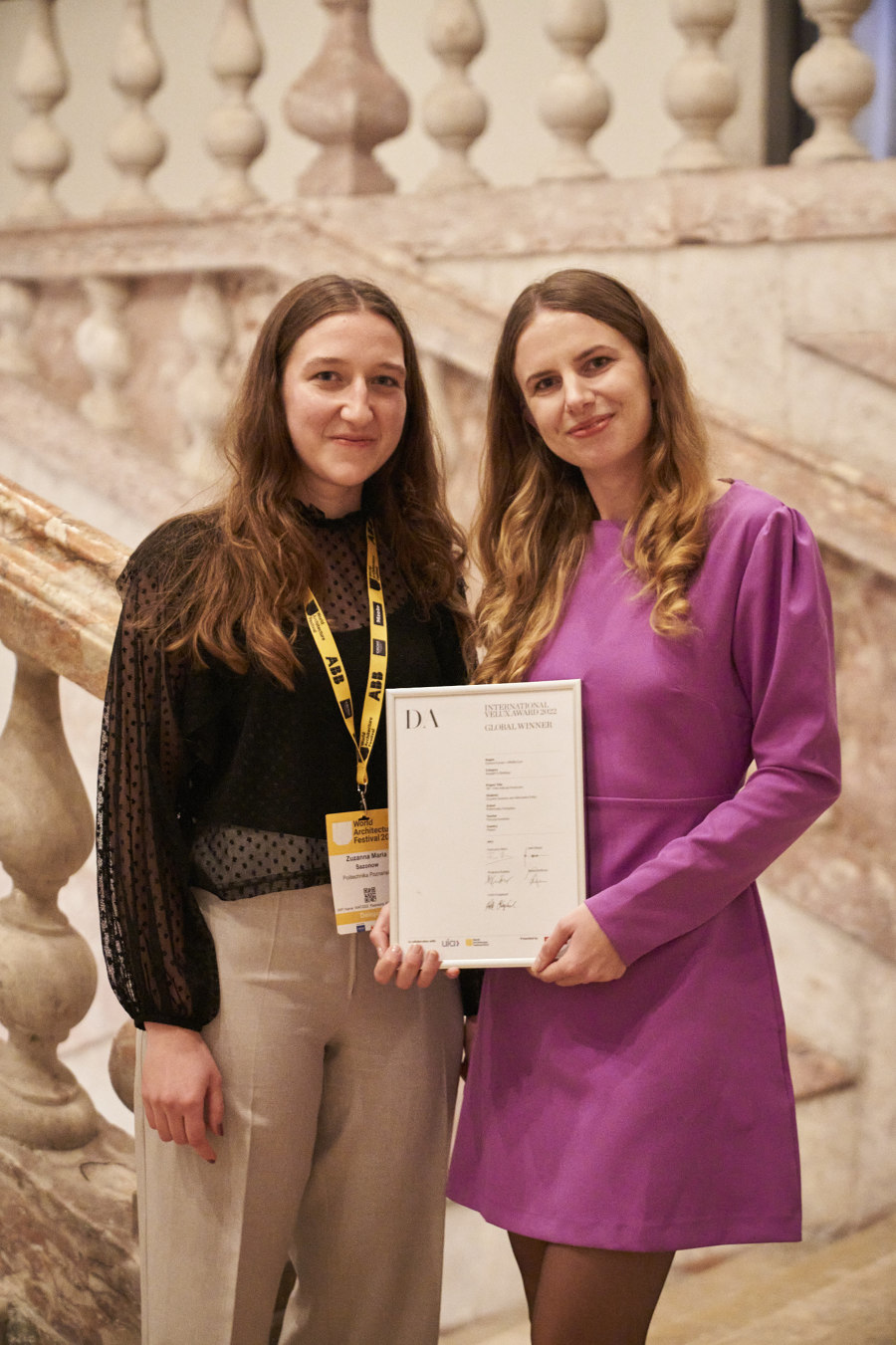
Zuzanna Sazonow and Aleksandra Pytka show the award they won under the tutorship of Patrycja Kamińska, for their aesthetically unifying system to control excessive heat while letting daylight in. Photo: ITCHY
×In the Daylight Investigations category, Sajjad Navidi, Mahya Mousavi Sadr and Elham Bahadori of the University of Art, Tehran, looked at the plight of refugees driven from war zones into camps, where light is scarce and therefore security and mental health are challenged. It is particularly an issue for young children, so combining a number of fields of intelligence, they created a system to harvest solar power to illuminate the nighttime, incorporating childhood play, solar panels, and waste recycling – customisable cardboard wings which capture solar energy while a child plays. ‘Flight proposed a very simple device for widespread application, to uplift and bring fun and joy and play into the lives of children, particularly children growing up in post-war situations,’ explains Kundoo. ‘We really appreciate the humble, simple project, but also that is very practical and fun.’
Each set of winning students and their teacher win a combined pot of £5000, while the world gains thoughtful, practicable solutions to climate and humanitarian problems. Windows or no windows.
Find more about the competition as well as the winning projects here, and follow our Instagram @internationalveluxaward
© Architonic
Head to the Architonic Magazine for more insights on the latest products, trends and practices in architecture and design.




